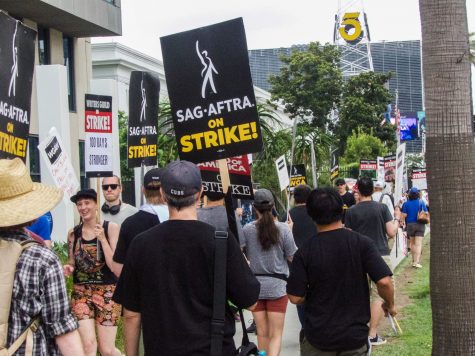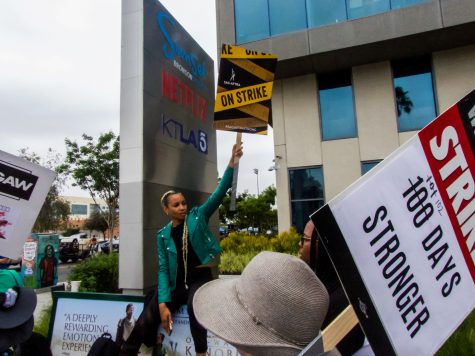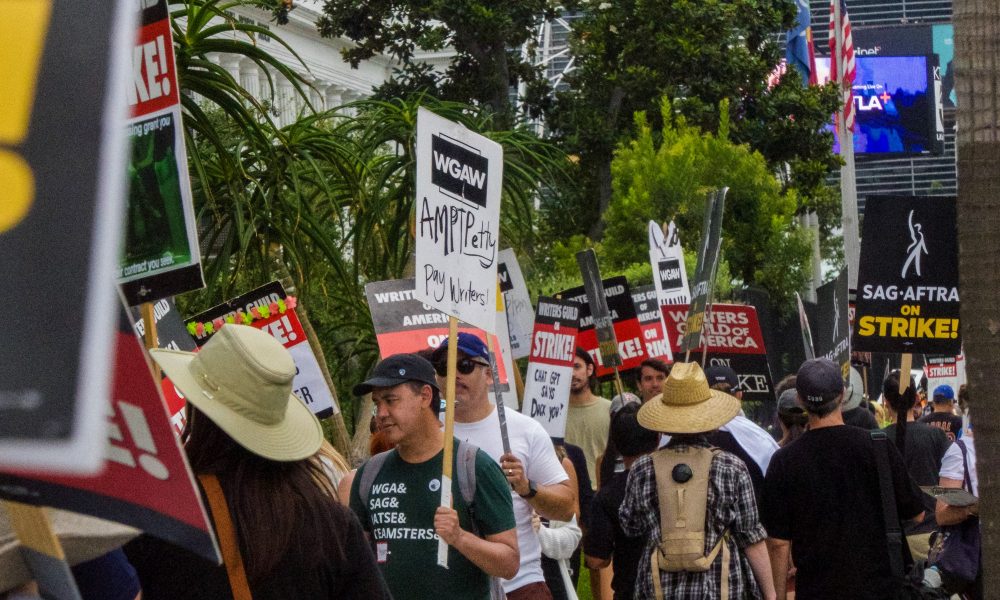Film and television has captivated audiences through decades of storytelling and technological advances.
Studying screenwriting was never my dream, but working with film and television has always seemed like the closest thing to it. As is the case with many others, picketing the streets of Hollywood and New York. What many would describe as their dream careers and an opportunity of a lifetime has been overshadowed by the realities of job security, the threat of AI and the death of creativity.
The film and television industry forced new and old writers alike to go from cable television where seasons were longer and could last for years, to streaming services where the seasons are shorter and could be canceled on a whim.
Studios have been also using AI technology, such as ChatGPT, to write screen adaptations and pass the product to entry level screenwriters. This eliminates the need to host normal writers rooms for brainstorming.
AI also has its shortcomings with lack of execution when it comes to writing comedic dialogue or other nuances that comes with screenwriting. With the new model of shorter seasons and longer episodes, writers are under a time crunch to edit and write with fewer human resources and have limited access to studio sets.

Danny Tolli, a volunteer for the Writers Guild of America who was picketing outside Netflix’s headquarters on Sunset Boulevard, described some of the conditions that screenwriters are currently going through.
“We’re all breaking story for 10 weeks, and then just being let go. We’re not getting set experience,” said Tolli, “We’re not getting the opportunity to write the scripts.”
Writers for production companies like Netflix and Paramount often find themselves in sessions coined “Mini Rooms,” which act as a miniaturized version of a writers room.
These Mini Rooms have become increasingly prevalent, with writers walking into big streaming service studios like Netflix, Hulu, Amazon Prime Video, Paramount, and NBCUniversal only to be greeted by an isolated structure separate from the environment of a film set.
This structure is daunting for new writers, especially when the rate of pay on even a successful series is so low. Living wages are non-existent for screenwriters, being paid as low as $259.71 for one episode of a successful Nielsen record breaking show like “Suits.”
The work that goes into crafting a successful and binge-worthy show takes countless hours and writers. The show “Suits” was actually created for broadcast television under the standard structure and practices of gaining on-set experience where screenwriters worked with post-production and had a full writer’s room. Many other shows like “Suits” have recently found success through streaming services like Netflix, but are undercutting compensation and experience in the process.

Alicia Carroll, a WGA volunteer described the huge contrast between standard practice to the current model.
“That pipeline of apprenticeship through promotion has kind of just disappeared,” said Carroll. “Now rooms are 10 weeks, 14 weeks instead of 30 to 40 weeks out of the year.”
WGA and SAG-AFTRA are striking in solidarity, not only for living wages and better working conditions, but to help preserve the essence of creativity that goes into creating quality films and television.
Where does the value in a six episode limited-series lie when compared to a long running broadcast show like “The Walking Dead” which can surpass ratings and viewership by simply being dropped on streaming.
The Alliance of Motion Picture and Television Producers (AMPTP) has finally begun the collective bargaining process this fall. They are starting contract negotiations with Writers Guild of America on Friday, Aug. 11.
This is only one step forward in the uphill battle in the center stage of workers’ rights in the entertainment industry.




